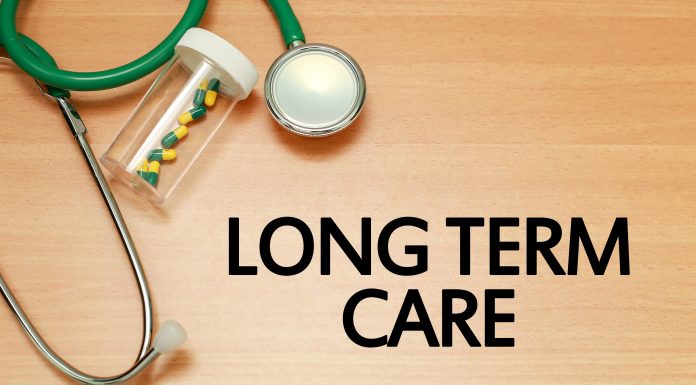Introduction
Trying to start a home health agency? This guide is for you! Keep reading.
The demand for Home Health services is growing rapidly as populations age and more people prefer to age in place. In the United States, families are increasingly seeking trusted providers to help their loved ones recover from illness, manage chronic conditions, or maintain independence in their old age.
Starting a Home Health agency allows you to create a positive impact on your community while making a smart business move. The industry is expanding, providing ample opportunities for dedicated entrepreneurs to succeed. According to the U.S. Census Bureau, the aging population is expected to rise significantly in the coming years.
Understanding the Home Health Industry
What Is Home Health?
Home health services provide medical or skilled care to clients in their own homes, as prescribed by a physician. These services help individuals recover from illness or surgery, manage chronic conditions, or maintain their health and independence while receiving professional care at home.
Types of Services Provided:
- Skilled Nursing Care
- Physical Therapy
- Occupational Therapy
- Speech Therapy
- Medical Social Services
- Medication Management and Administration
- Wound Care and Injections
- Health Monitoring and Patient Education
Market Trends and Growth Potential
With an aging population, longer life expectancies, and a shift towards outpatient and home-based care, demand for Home Health services is rising. The U.S. Bureau of Labor Statistics predicts strong job growth in healthcare support fields, with home health playing a significant role.
Challenges in the Industry
While the industry presents great opportunities, challenges include:
- Navigating complex regulations to obtain the state licenses
- Hiring and retaining qualified staff
- Maintaining high-quality care standards
Seeking professional guidance from experts, such as CarePolicy.US, can help overcome these challenges.
Business Planning Essentials
Defining Your Niche
Identifying a specialty within home health allows your agency to stand out and deliver focused, high-quality care. By targeting a specific population or type of care, you can better align your clinical expertise, staffing, and marketing efforts.
Common Home Health Niches Include:
- Senior Care – Skilled nursing and therapy services for elderly clients aging at home
- Post-Surgical Recovery – Short-term skilled care for clients recovering from surgery
- Pediatric Home Health – Skilled nursing and therapy services for medically fragile children
- Chronic Illness Management – Ongoing care for conditions such as diabetes, COPD, or heart failure
Choosing a clear niche helps build credibility, streamline operations, and attract the right referrals and clients.
Market Research and Competitive Analysis
Thorough market research is critical to launching and growing a successful Home Health Agency. Understanding the strengths and limitations of other home health providers in your area helps you identify opportunities to differentiate your services.
Focus on uncovering gaps in skilled medical care, such as:
- Shortage of bilingual skilled nurses and therapists
- Lack of specialized rehabilitation services (e.g., stroke, cardiac, orthopedic recovery)
- High demand for in-home pediatric nursing services
- Limited chronic disease management programs (e.g., COPD, diabetes, heart failure)
- Inadequate post-hospitalization follow-up care
- Long wait times for in-home skilled nursing or therapy
By identifying these service gaps, your agency can position itself to meet unmet medical needs in the community—enhancing patient outcomes and becoming a preferred provider for physicians, hospitals, and discharge planners.
Crafting a Comprehensive Business Plan
A strong business plan is your roadmap to success. It should include:
- Mission and Vision: Define your purpose and goals.
- Services Offered: List the specific services you will provide.
- Target Market: Identify your ideal clients.
- Financial Projections: Estimate costs, expected revenue, and break-even points.
Legal and Regulatory Requirements
Business Registration and Structure
Choose the appropriate business structure:
- Limited Liability Company (LLC)
- Corporation
- Sole Proprietorship
Register your business with the appropriate state and local agencies.
Licensing Requirements
Most states require a Home Health agency license. Additional licenses may be needed for services such as skilled nursing or therapy. Check with state regulatory agencies for specific requirements.
Medicare and Medicaid Certification
If you plan to accept Medicare or Medicaid, you must complete the certification process. This certification expands your client base and provides steady referrals. With your home health license, you can apply for Medicare with CMS.
Insurance
To protect your agency, secure the right insurance policies, including:
- General Liability Insurance
- Professional Liability Insurance
- Workers’ Compensation Insurance
Even if this process makes you a little bit of tired, it is important to follow them carefully for the future of your business. If you get lost or if you need specialized assistance, this is the place you should visit. CarePolicy provides personalized guidance to make the process of establishing a business easier with their Homecare Policy & Procedures, Licensing Consultations.
Funding Your Agency
Estimating Startup Costs
Starting a Home Health agency involves various expenses, such as:
- Licensing Fees
- Office Space (Optional as you can start with home office for some states)
- Medical Equipment
- Software for Record-Keeping
- Salaries for Initial Staff
Sources of Funding
Funding options include:
- Personal Savings
- Small Business Loans
- Private Investors
- Healthcare-Specific Grants (available from some state organizations)
Managing Cash Flow in the Early Days
Managing cash flow can be challenging, especially while waiting for insurance reimbursements. Strategies include:
- Maintaining a Reserve Fund
- Prompt Invoicing
- Controlling Unnecessary Expenses
Hiring and Training Staff
Key Roles to Hire
- Registered Nurses (RNs)
- Licensed Practical Nurses (LPNs)
- Certified Nursing Assistants (CNAs) / Home Health Aides (HHAs)
- Physical, Occupational, and Speech Therapists
- Administrative Staff (Billing, Scheduling, HR)
Recruiting Qualified Professionals
- Hire licensed, experienced, and compassionate staff.
- Use healthcare job boards, nursing schools, and job fairs.
- Ensure state certification and licensing compliance.
Ongoing Training and Development
- Provide regular training on patient care, safety, and compliance.
- Offer professional development opportunities.
Building a Positive Work Culture
- Encourage open communication and teamwork.
- Recognize employee contributions to reduce burnout and turnover.
Marketing Your Home Health Agency
Branding and Creating a Professional Image
Build a trustworthy and compassionate brand with a unique logo, name, and consistent messaging.
Building a Website and Online Presence
- Develop a professional website that outlines your services, mission, and vision.
- Use SEO to rank in local search results.
- Stay active on social media to build credibility.
- Invest in Google Ads for targeted marketing.
Local Marketing Strategies
Promote your agency through:
- Flyers and Community Sponsorships
- Health Fairs and Local Events
- Partnerships with Healthcare Providers
Creating Referral Programs and Partnerships
- Build relationships with hospitals, doctors, and rehab centers for referrals.
- Encourage word-of-mouth recommendations in the local community.
Providing Quality Care and Ensuring Compliance
Implementing Quality Assurance Programs
- Regularly review care plans and service delivery.
- Conduct internal audits to maintain high standards.
Patient Satisfaction Surveys and Feedback Loops
- Collect client and family feedback.
- Use surveys to identify areas for improvement.
Auditing and Maintaining Regulatory Compliance
- Stay updated on healthcare regulations and industry standards.
- Perform routine compliance checks and staff reviews.
Continuous Improvement Strategies
- Hold regular team meetings to address challenges and solutions.
- Invest in staff training and technology to enhance efficiency and care quality.
Conclusion
Starting a successful Home Health agency is both rewarding and challenging. With a solid understanding of the industry, a well-developed business plan, a dedicated team, and a commitment to providing exceptional care, you can make a real difference in people’s lives while building a strong business.
Success in this field requires balancing compassion with professionalism and staying committed to continuous improvement. With the right strategy and mindset, you’ll be well on your way to establishing a trusted and thriving Home Health agency.
Now, it’s time to take the first step and bring your vision to life!


























